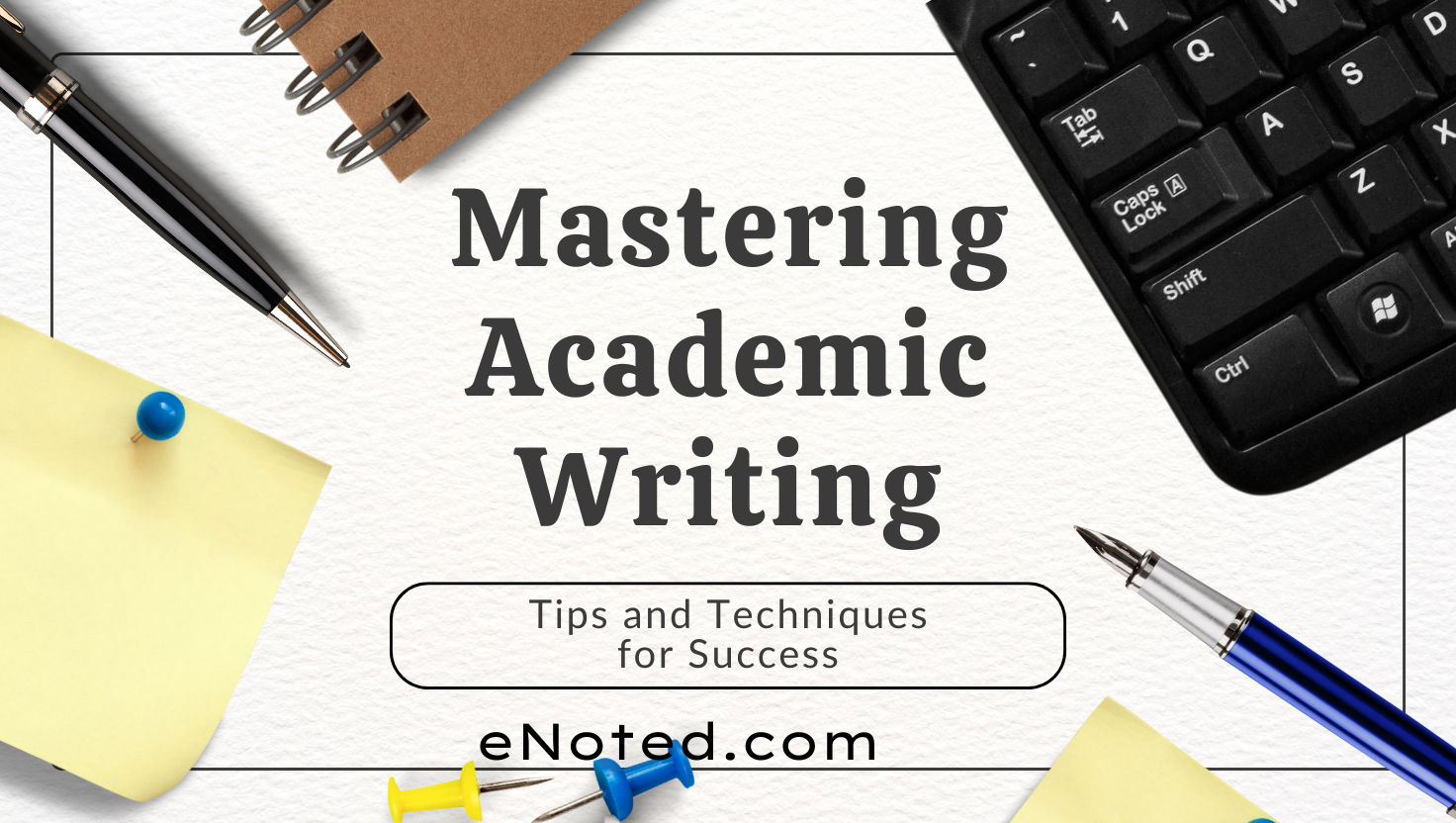Introduction:
Academic writing is a structured and formal mode of communication aimed at conveying ideas, arguments, and research findings effectively. It is vital in educational and professional contexts, allowing writers to express complex thoughts clearly and persuasively. Whether crafting a research paper, thesis, or essay, mastering academic writing equips students with the tools to succeed in their academic journey and beyond.
Subheadings and Key Points:
1. Understanding Academic Writing
Academic writing is more than just presenting facts; it involves critical analysis, structured reasoning, and a formal tone. Its purpose varies across disciplines, from analyzing historical events to solving scientific problems. Each discipline has unique conventions and expectations, which makes flexibility and adaptability essential for academic writers.
2. Types of Academic Writing

Descriptive Writing
Descriptive writing focuses on presenting factual information or a clear summary of events, processes, or findings. It aims to inform the reader without providing analysis or interpretation. For instance, summarizing the results of an experiment, describing a historical event, or outlining a literary plot falls under this category. The goal is clarity, achieved through detailed explanations and precise language. Descriptive assignments often include instructions like “define,” “describe,” or “identify,” encouraging students to lay the groundwork for more complex analyses. While it is straightforward, descriptive writing forms the basis for other types of academic writing by establishing the necessary context.

Analytical Writing
Analytical writing goes beyond description to organize information into meaningful categories, relationships, or patterns. This type of writing is often used to examine theories, compare ideas, or explore relationships between variables. For example, an analytical essay might break down a novel’s themes into components such as character development, symbolism, and narrative structure. It encourages writers to evaluate evidence critically, identify connections, and present a structured argument. Analytical writing is invaluable in fields like science, literature, and social studies, requiring writers to think logically and present insights clearly.

Persuasive Writing
Persuasive writing includes all the elements of analytical writing but adds the writer’s viewpoint, aiming to convince the reader of a particular argument or perspective. Essays, research articles, and position papers often fall into this category. Persuasive writing involves not only presenting evidence but also interpreting it to align with the writer’s thesis. For example, an argumentative essay might advocate for renewable energy adoption by presenting evidence and addressing counterarguments. Effective persuasive writing balances passion with evidence, ensuring that every claim is substantiated by credible data.

Critical Writing
Critical writing requires evaluating multiple perspectives on an issue, including the writer’s own, to offer a balanced and reasoned conclusion. It is common in advanced academic contexts, such as literature reviews, critiques, and postgraduate research papers. For instance, a critical essay on a scientific theory might compare competing hypotheses, assess their strengths and weaknesses, and propose a new interpretation. This type of writing demands thorough knowledge of the subject matter, logical reasoning, and the ability to synthesize diverse viewpoints. Critical writing challenges the writer to engage deeply with the material, fostering intellectual growth and innovation.
3. Core Components of Academic Writing
- Introduction: Captures attention, provides background, and includes a clear thesis.
- Body: Develops arguments with evidence, examples, and analysis.
- Conclusion: Summarizes key points and reinforces the thesis with final insights.
4. Language and Style
- Use formal vocabulary and avoid casual phrases or contractions.
- Ensure objectivity by focusing on facts and ideas rather than opinions.
- Apply technical terminology accurately and consistently.
Conclusion:
Academic writing is an essential skill for navigating the world of academia and professional communication. By mastering its forms—descriptive, analytical, persuasive, and critical—writers can articulate ideas effectively, contribute to scholarly discourse, and achieve their academic goals. Embrace the journey of continual improvement and practice, transforming challenges into opportunities for growth.
Begin honing your academic writing skills today and unlock your full potential in scholarly and professional endeavors!

